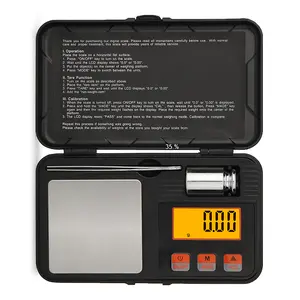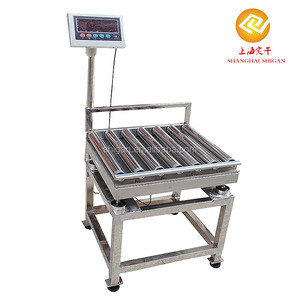Introduction to Conveyor Scales
Conveyor scales, integral components for various industrial applications, offer precision and efficiency in weight measurement of goods on the move. These dynamic systems, also known as conveyor belt scales or weigh belt conveyors, are designed to weigh products as they pass over a conveyor belt. This category encompasses a range of devices tailored to meet the diverse needs of industries from logistics to mining.
Types and Applications
The versatility of conveyor scales is reflected in their types, such as inline conveyor scales and checkweigher conveyors, each serving specific weighing needs. Inline scales are commonly used for end-of-line weighing, while checkweighers are essential for quality control, ensuring products are within specified weight ranges. These scales are pivotal in industries where accurate weight data is crucial, including agriculture for livestock scales and transportation for truck weight scales.
Features and Materials
Modern conveyor weighing systems boast features that enhance accuracy and reliability. Constructed from durable materials like stainless steel, they withstand harsh industrial environments. Advanced features include real-time data collection and seamless integration with inventory management systems. The conveyor belt weighing system is designed to minimize errors and maintain consistent performance, crucial for operational efficiency.
Advantages of Conveyor Weighing Solutions
The adoption of conveyor weighing scales brings numerous advantages. They streamline processes by providing in-motion weighing, eliminating the need for separate weighing stations. This integration saves time and reduces labor costs. Furthermore, the precision of a conveyor belt weight scale ensures accurate billing and inventory tracking, which is essential for maintaining customer trust and managing resources effectively.
Selection Considerations
Choosing the right conveyor scales requires consideration of several factors, including the maximum load capacity, the speed of the conveyor, and the environment in which the scale will operate. It is also important to consider the compatibility of the scale with existing conveyor systems to ensure a seamless integration. A weigh scale conveyor should be selected based on the specific needs of the operation to ensure optimal performance and reliability.
Maintenance and Longevity
Maintaining conveyor scales is straightforward, often requiring only regular calibration and occasional part replacement. Unlike traditional scales, these advanced systems do not rely on spring mechanisms, which can degrade over time. Instead, they utilize robust load cells, ensuring longevity and consistent accuracy. Regular maintenance of a conveyor weighing machine ensures it remains a reliable part of the industrial process for years to come.






























 浙公网安备 33010002000092号
浙公网安备 33010002000092号 浙B2-20120091-4
浙B2-20120091-4